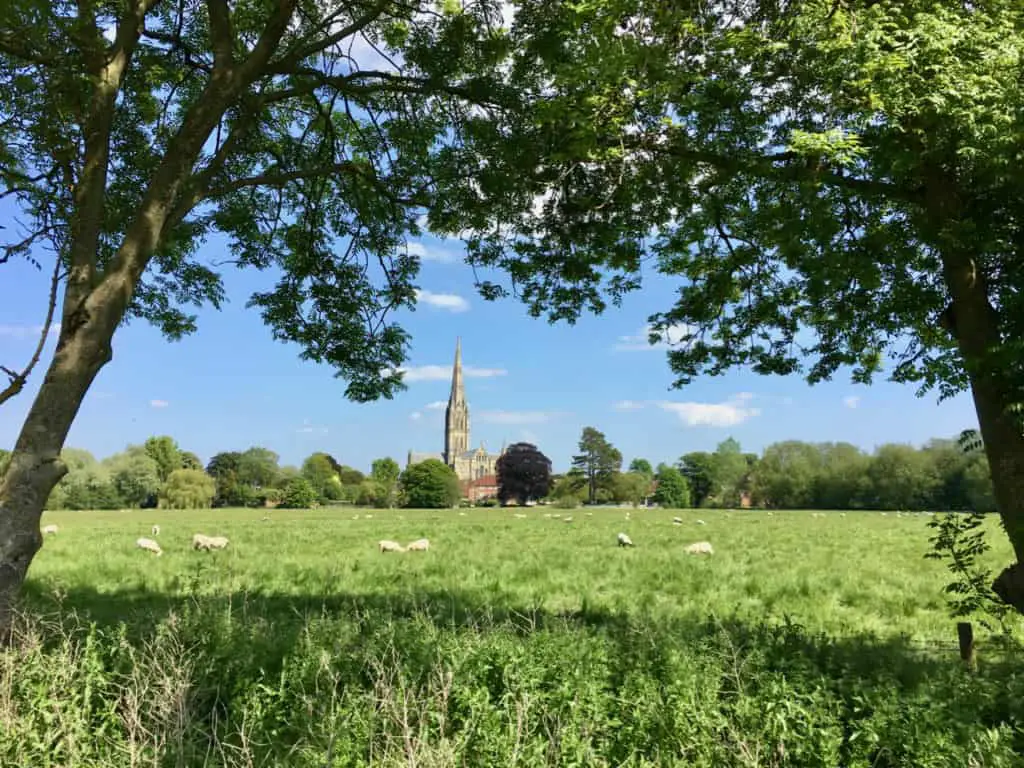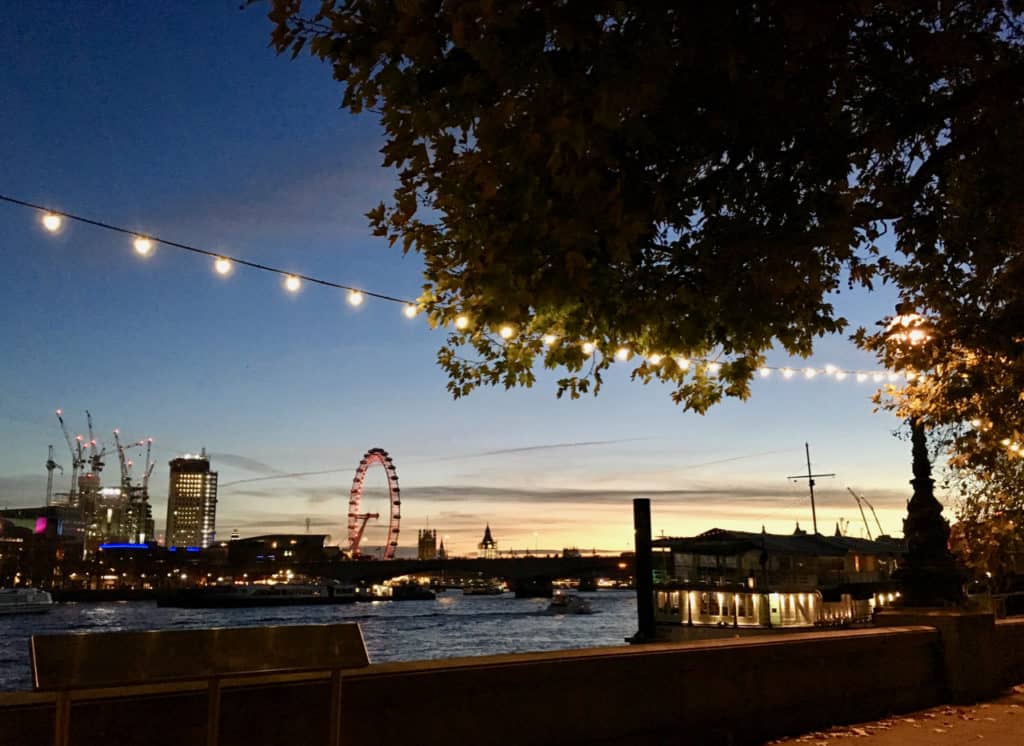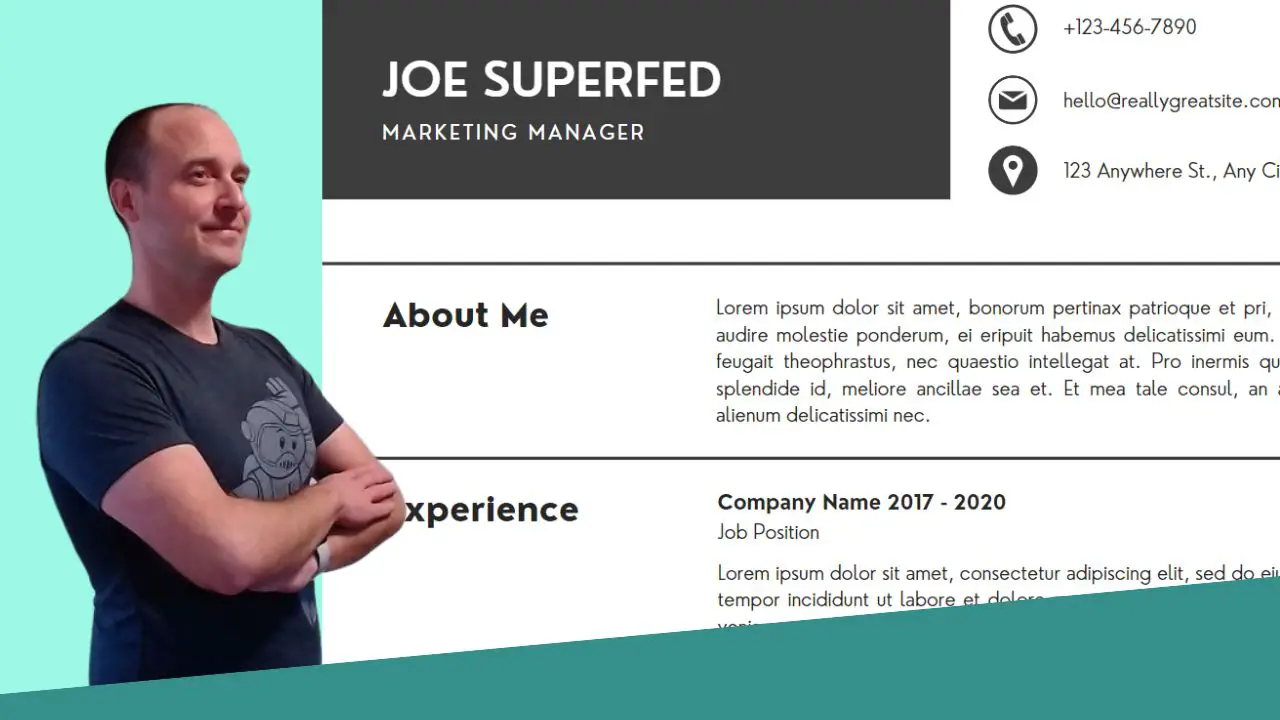Have you ever dreamed about working somewhere completely different?
The federal government has many jobs outside of the continental US (OCONUS). You could be sipping an espresso at your desk in Rome. Or perhaps you’d much rather be stationed in Brazil and spend your weekends and holidays trekking through South America .
No matter what your dream location is, it is likely that the government has at least 1 job there. Want to know how to find an OCONUS job in your dream location? In this article, I interview a federal employee who worked an OCONUS job. They explain how to find OCONUS jobs and describe OCONUS compensation.
Get Gov Worker’s top 4 tips for federal employees!Table of Contents
- Meet the interviewee
- How is the compensation for OCONUS jobs calculated?
- Additional Types of Pay
- Health Insurance for OCONUS Jobs
- Does the OCONUS COLA cover the cost of living?
- OCONUS Jobs and Financial Independence
- Advice for people looking for OCONUS positions
- What kinds of OCONUS jobs are available?
- Can you apply directly for OCONUS jobs?
- What is the best way to search for OCONUS jobs?
- How to make the most of an OCONUS job
Please do not confuse my personal blog for financial advice, tax advice or an official position of the U.S. Government. This post may contain affiliate links. If you make a purchase after clicking on a link, I get a small percentage of the sale at no additional cost to you.
Meet the interviewee
While the employee I interviewed wishes to remain anonymous, here is a little bit about them. Hopefully this sets the stage for understanding how they found their OCONUS job.
The remainder of the article is written in the first person. However, the “I” in the article refers to the guest writer and not GovWorker.
I’ve been a Fed for 10 years now. I started right out of undergrad with a fellowship working at a research facility for about 18 months. This was basically a trial period to see if they wanted to hire me as a Fed. In June 2009, I officially started my Fed career. I always knew many people considered Federal employment a “cushy” job. Therefore, I quickly worked to find all about these great benefits. That led me down a road of agency-funded master’s and PhD programs, and also to several unique opportunities abroad.

My first OCONUS experiences were on short trips to work with a research group overseas. Over time it became clear that it would make sense to embed with them for a period of time. This ultimately led to my first OCONUS “permanent change of station” (PCS). My wife and I spent a year abroad. After that year, I developed a deep interest in international cooperative work. It blended my technical training with my personal interests in international travel, behavioral science, and politics/diplomacy. After this, I focused my sights on a job that was a perfect fit for my interests. I worked towards this dream job for the next 5 years.
I’m currently in that dream job. We are once again on an OCONUS PCS assignment, this time for 3-5 years.
How is the compensation for OCONUS jobs calculated?
Let me start by saying this: overseas allowances are confusing. There are some allowances for moving and others for ongoing expenses. Furthermore, your agency may have discretion in what you do and don’t get. It can feel like a mess.
I think some of these things are really hard to understand until you actually do it, but I will explain some of the more straightforward and regular ones here. If there’s one thing
I’ve learned it’s that people on OCONUS assignments rely on each other to share knowledge on the benefits. Many people don’t learn about specific benefits until they are moving or have already moved.
Temporary Quarters Subsistence Allowance (TQSA)
This is an “actual expense” reimbursement for when you first move overseas and are living in a hotel or other temporary housing. You can’t bank any money off of it, but you can live like a king and have some awesome meals out exploring your new city at no cost to you. The rates are quite generous, so it makes sense to use it while you have it.
Post Allowance
Post allowance is a tax-free amount given on top of your base salary. When you’re overseas you don’t get the locality adjustment, instead you get post allowance. There’s a complicated formula to calculate it, but the short version is that it is intended to help match the buying power of your “spendable” income. I come from a “rest of US” locality, and find the post allowance to do a pretty good job of matching its intent. I think the best part of post allowance is that it’s completely untaxed!
Living Quarters Allowance (LQA)
LQA is the allowance you get to rent a house overseas. Unfortunately it’s just a reimbursement, so you can’t live in a shack and bank tons of money, but, like TQSA, the allowance is very generous. It is set based on the cost of living where you are, and in my experience allows you to live in some very nice places. It covers housing and basic utilities (gas, water, electric, sewer, etc.). It’s tax free, and is basically a reimbursement. Again from the FI perspective, you aren’t going to pull in huge extra money here since you can’t pocket a difference, but the generous LQA generally means you can live where you want to so you can focus on walkability, public transport, etc., without having as much of a cost tradeoff. Also, it means FREE HOUSING, so that’s, well… huge.
Education
Full disclosure – I don’t have kids, so I don’t use this benefit. But, I know people who do. If you don’t live in an area serviced by overseas US schools (which is a lot of areas), the Government will pay for your kids to go to school.
My coworkers here are sending their kids to the best schools in the country and not paying a dime for it. It gives you choice, flexibility, and peace of mind that your kids will continue to get a good education while abroad.
Real Estate Expense/Management Expense
This one is at the discretion of your agency, but you may be entitled to have a portion (or all) of your fees and losses reimbursed for selling a home stateside. This is of course if you choose to sell your home.
For those interested in financial independence, real estate management expenses is where it’s really at. If your agency approves this, they will cover the cost of hiring a management company to rent your home back in the US. When combined with LQA, this means you not only have ZERO housing expense, but you can also use the home you own as a way to generate income at no cost to you. It’s an awesome benefit if you can get it.
Additional Types of Pay
In addition to the allowances above, there are a few types of additional pay incentives that the Government uses to entice people to work in less desirable locations.
Danger Pay
Danger pay (sometimes called hazard pay) is typically associated with positions located in areas where you may be at an increased risk of injury, death, kidnapping etc. Sounds great, right?
Examples may be DoD jobs in Iraq, State Dept. jobs in Central Africa, etc. I know a number of people who have taken these jobs because you can make a ton of money, but there is definitely a reason they pay more.
Just like the stock market, higher returns come with higher risk. I would only go after a job with Danger Pay if it was a job where I really thought I could make a difference and do good work. For me, the money alone wouldn’t be enough incentive based on some of the locations.
Post Hardship Differential
Hardship differential is a way to try and recruit people to places that aren’t necessarily pleasant to live. It’s different than danger pay, because it’s based on the availability of goods and services, environmental quality, etc.
You can receive both hardship and danger pay at a single location. You’ll be hard pressed to find a job with hardship differential in Europe or the rest of the first world with a few small exceptions. This is generally used in 2nd and 3rd world countries.
Health Insurance for OCONUS Jobs
We maintain our FEHB policy even though we are located overseas. We use a Blue Cross Blue Shield program with overseas coverage and they basically cover everything. Sometimes the expense has to be paid up front and reimbursed, but our experience has been that coverage is good.
Since we’re living in the UK we also have access to their wonderful National Health Service (NHS), and use that for basically all of our normal care. It’s great, totally free, and almost eliminates the need for our private insurance here.
You may have more difficulties less developed countries. Your insurance coverage may be good, but if there aren’t good quality hospitals around it doesn’t much matter. I haven’t had this experience, but it’s part of the reason for hardship allowances.
I would definitely recommend that someone with any significant medical conditions should weigh the quality of care available in a location before signing up for a job there.
Does the OCONUS COLA cover the cost of living?
In my experience, the LQA and educational allowances are outstanding. During my first assignment our LQA allowed us to literally rent any property we wanted in the town we were living in (and still have extra wiggle room).
We were able to walk in, offer over asking price, and request specific changes and upgrades to a property. Landlords love us as renters because the US Government is backing the rent.
I currently work with a guy who lives in a 6 bedroom house with an in ground pool and hot tub. He doesn’t need it, and could never afford it back home, but it’s all covered on LQA. I think, this is a great way to find a place that will keep you happy, meet all your needs, and help keep your spending outside the home down since you can have the “perfect” place.
On the whole, we don’t feel that our overall quality of living has changed, and we currently live in a city that has probably a 50-75% higher cost of living than where we were previously in the Midwest.
Looking only at the paycheck can sometimes be deceiving, because the ancillary benefits like LQA and education expenses can easily meet or exceed your salary.
OCONUS Jobs and Financial Independence
Can OCONUS jobs help you achieve financial independence or early retirement?
My OCONUS jobs helps us to build equity in our home stateside without spending a dime on housing. We own a house in the US and currently have a renter in it. He is someone we know and trust, and we gave him a great deal on rent to basically cover all our expenses.
Meanwhile, the Government pays all our housing costs overseas. Therefore we have no housing cost and are simultaneously building equity in a home. At the end of this assignment we’ll have 5 years of our mortgage paid down for free…and we won’t have spent anything on housing during that whole time.

In my particular job I also travel a lot on temporary duty (TDY) to other OCONUS locations. One thing that you’ll quickly learn with OCONUS TDY is that the daily per diem rates are very generous. For example, the daily rate in Munich right now is $99/day, Madrid is $126/day, London is $183/day… you get the picture.
Even if I wanted to I would struggle to spend that much in a day. I can easily pocket $75/day tax free. It is possible to do this stateside, but the rates seem to be higher OCONUS and the prevalence of hotels with food included is way higher.
Advice for people looking for OCONUS positions
My first OCONUS job came about organically. I was working with the group overseas, and we thought it would be a good idea if I worked more closely with them for a while. We figured out a way to make it happen and then went after it.
Nobody in my local office at home even knew there was a way to do this, so it was pretty much me pushing the whole way. Bottom line… if someone can be convinced something is a good idea, it can probably happen, but nobody is going to hand it to you.
My current OCONUS job is with the same agency and organization I’ve worked for over the past 10 years. I started laying the groundwork for getting this job about 5 years ago. First I singled to people in the right positions that I wanted the job. I then worked to demonstrate how I would be a good fit for the job when it opened up.
If it sounds like shameless promotion… it sort of is. If there’s anything I’ve experienced as a Fed it’s that your supervisors and leadership are generally not incentivized to look out for you and your development. Some will – and count yourself lucky if you’re working for someone like that – but it’s not the norm (at least where I work).
In short, I found these opportunities, figured out what I needed to be competitive for them, and focused on developing those skills. At the same time I made sure to volunteer for special assignments where I could show my skills and tried to make opportunities to work with the people who made decisions about these positions.
What kinds of OCONUS jobs are available?
I am by no means an expert on this since I am only aware of what exists inside my agency, which is primarily engineers and scientists. For scientists/engineers there are many jobs with organizations like the US Army Corps of Engineers, Dept. of Defense, and many many jobs running and operating facilities like embassies and consulates with the Dept. of State.
Outside of these agencies, you might try something like the Foreign Service. However, that is really a career-long endeavor. If you’re not already on that track it can be hard. I also know people who work overseas for Depts. of Transport, Commerce, and Agriculture to name a few.
Unfortunately for lower-graded employees, the Government generally hires “local nationals” for clerical and administrative positions. This means most of the overseas postings are white collar: engineers, architects, diplomats, doctors, negotiators, etc.
As far as special skills, the most important thing that most hiring managers will look for is previous international experience. It may seem obvious, but there are tons of people who apply for these jobs and have never even left the US.
One of the biggest challenges that can arise for people is culture shock and homesickness when overseas, so if someone going into a job doesn’t have some demonstrated experience of living abroad it can be a risk. That’s not to say it’s a requirement, but when all other things are equal it can matter.
Can you apply directly for OCONUS jobs?
Like all Fed jobs, it depends on how the position is coded and advertised. A quick search right now for jobs in Germany turns up many positions that are open to the general public. Again, these are going to be almost entirely white collar jobs, so that’s likely what you’ll see online.
Some jobs will require past experience – especially diplomatic postings and the Foreign Service. I don’t work in the State Dept., so am not as familiar with their processes, but my understanding is that tends to be a path that starts with the State Dept. job in US and then moves overseas.
What is the best way to search for OCONUS jobs?
Most of the jobs I am aware of are competitively hired for, regardless of whether they are restricted to internal applicants. This means that they would be posted on USAJOBS. My best suggestion would be to set up some screen filters on USAJOBS for countries and career fields that fit your interests and start seeing what comes in.
It may also be useful to do a global search on your own agency to see what type of, if any, positions your agency has overseas. Of course this will only be a snapshot in time, but it can give some scope of the possibilities.
How to make the most of an OCONUS job
Mobility
Setup your life to be mobile. The more complications you have in leaving your current location, the more expensive it gets. In our case we have dogs that we took with us overseas. Leaving them wasn’t something we were willing to do, so they got on a plane and flew halfway across the world. The Government helps with this, but didn’t cover all the cost, so it had an out-of-pocket consequence for us.
Housing benefits
Take advantage of the housing benefits. I work with people here who own homes in the US that are sitting vacant while they’re here because they don’t want to try and rent them. It’s crazy. There are people from Northern Virginia leaving $2000 a month on the table easily because they’re paying a mortgage stateside while here. Don’t do this! It’s nuts!
Possessions
I think it’s important not to get too attached to things. Whether it’s a car, a piece of furniture, or something else sentimental, there’s a chance you may need to get rid of or sell some things if you’re going to leave for several years. The more simple your life is the easier this is to do.
Cars
Sort out your car situation. We keep an 11 year old car in the states and pay storage insurance for it so we can drive it when we visit home. It costs us about $200/yr total including registration fees for the car. If we had a new car and a car payment we would either be sinking money into payments for a car we don’t use or we would be selling a late-model car way too early and taking a loss. It’s important to know that most auto loans won’t let you move the car overseas.
Tax planning
One of the biggest financial challenges I have had from the OCONUS assignments is the added complication for tax planning. These allowances don’t all start automatically, and don’t necessarily start at the same time. Some end up retroactive, some end up being reconciled later on. I have tried to tax optimize to keep income below certain tax brackets, but the variability can make that a bit of a challenge year to year.




